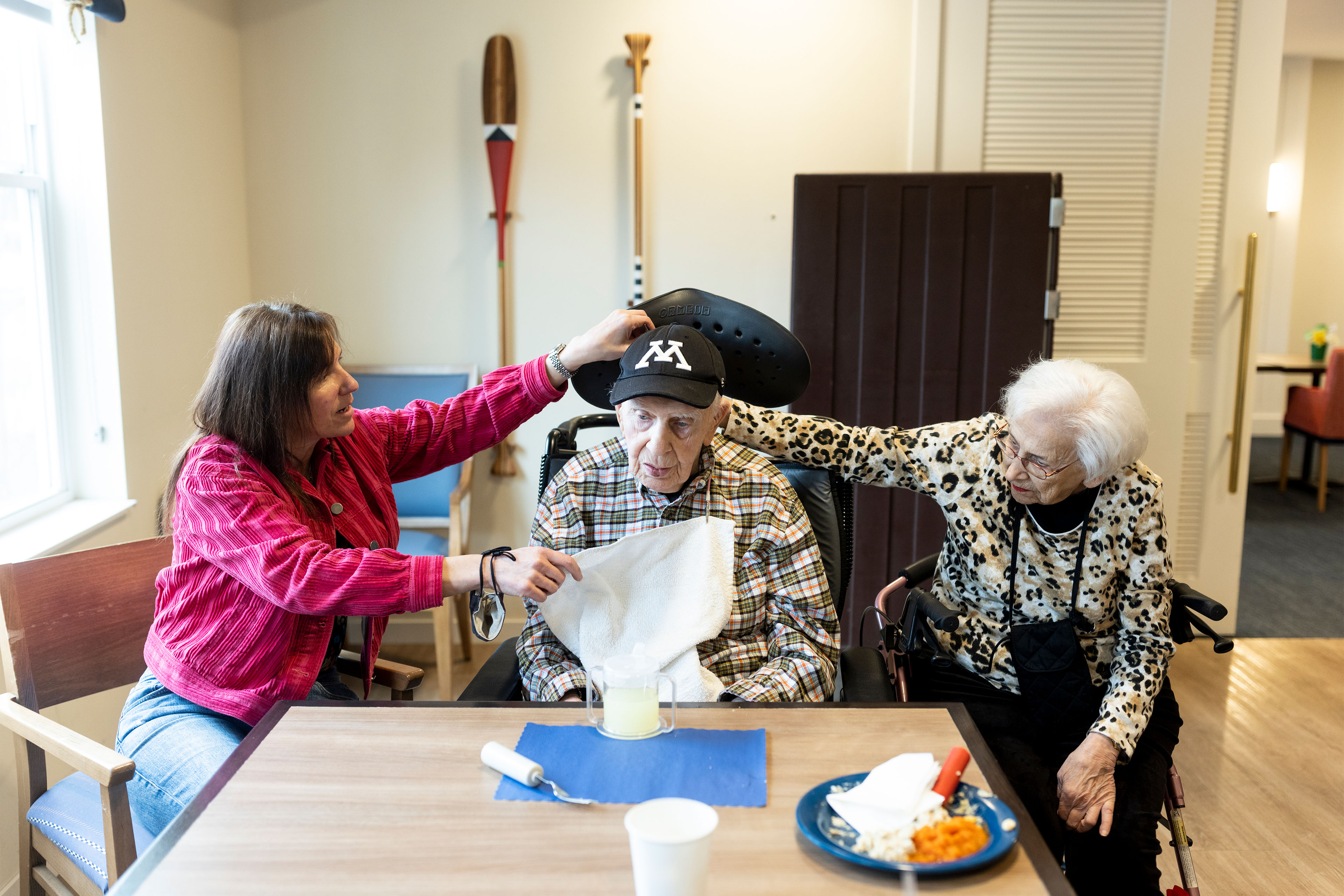Learn about new Memory Care techniques for cognitive well-being.
The Function of Assisted Residing In Giving Specialized Care for Mental Deterioration Clients
The stipulation of specialized treatment for dementia individuals within assisted living facilities is increasingly identified as a vital component of reliable mental deterioration administration. These atmospheres are created to deal with the one-of-a-kind cognitive and psychological challenges dealt with by people with mental deterioration, providing customized support that advertises security and well-being.
Recognizing Dementia Care Needs
Comprehending the treatment needs of individuals with dementia is essential for providing efficient assistance and improving their lifestyle. Dementia is a progressive neurological condition that influences cognitive functions such as memory, thinking, and interaction. As a result, individuals with mental deterioration frequently call for support with day-to-day tasks, customized treatment plans, and psychological assistance.
Efficient mental deterioration care includes identifying the unique difficulties encountered by each individual. This includes comprehending the phases of mental deterioration, which can range from moderate cognitive disability to innovative stages requiring extensive help. Treatment requires may encompass support in handling everyday routines, drug adherence, and keeping social communications to avoid seclusion.
In addition, sensory stimulation and familiar atmospheres can dramatically boost the well-being of individuals with dementia. Caretakers should be educated to determine behavior modifications and utilize methods customized to every person's preferences and past experiences. Techniques such as validation therapy and memory can aid connect effectively and promote a complacency.
Eventually, effectively dealing with the care needs of people with dementia needs a compassionate approach, ongoing training for caretakers, and a dedication to preserving self-respect and regard throughout the caregiving process.
Benefits of Assisted Living

One more substantial advantage is the safe and secure setting these facilities give. Locals gain from features such as safeguarded entryways and checked typical locations, decreasing the danger of roaming and boosting general safety. Assisted living promotes social interaction amongst locals, fostering a feeling of area and belonging. Engaging with peers can relieve feelings of isolation, which are typical in those coping with mental deterioration.
In addition, numerous assisted living facilities provide help with everyday activities, such as drug monitoring, showering, and dish prep work. This assistance enables residents to maintain their self-reliance while ensuring their health and wellness and wellness are prioritized. Ultimately, assisted living serves as an important resource, stabilizing treatment and freedom for people with mental deterioration and their households.

Specialized Programs and Activities
(Assisted Living Charlotte)Identifying the unique needs of individuals with dementia, lots of assisted living centers apply customized programs and tasks designed to improve cognitive function and promote overall health. These programs frequently include cognitive excitement activities that engage locals in memory games, problems, and memory therapy, which encourages the sharing of individual tales and past experiences.
Furthermore, art and songs therapy play significant duties browse around this web-site in fostering creative thinking and emotional expression (Memory Care). Engaging homeowners in painting, crafting, or songs sessions can offer healing benefits, aiding to decrease anxiousness and enhance mood. Physical tasks, such as gentle workouts and dancing sessions, are likewise crucial, as they promote flexibility and physical health and wellness while urging social communication amongst locals
Organized daily regimens are often established to give a sense of stability and predictability for people with mental deterioration. These regimens can include arranged dish times, team activities, and customized treatment plans that provide to specific interests and capabilities. By developing an enriching atmosphere loaded with customized activities, helped living centers not just enhance the lifestyle for mental deterioration people but likewise promote a feeling of community and belonging.
Trained Personnel and Assistance
(Dementia Care Charlotte)In helped living facilities, the existence of trained staff is crucial for giving effective assistance to people with dementia. These specialists possess specialized understanding and abilities to address the unique needs of citizens, guaranteeing their security, convenience, and well-being. Team member receive training in mental deterioration care, which includes recognizing the progression of the illness, identifying behavior modifications, and utilizing reliable communication methods.
In addition, qualified personnel are outfitted to execute personalized care strategies customized per resident's preferences and capabilities. This customized strategy fosters a sense of freedom and self-respect, permitting residents to engage in significant activities that improve their lifestyle. The team additionally play an essential role in keeping an eye on wellness and health, promptly identifying any changes in condition that may call for medical focus.
In enhancement to direct care, trained staff provide emotional assistance to homeowners, helping to minimize feelings of confusion and anxiety that frequently accompany dementia. Their compassionate strategy develops a caring environment where citizens feel valued and comprehended - Assisted Living. Ultimately, the knowledge and dedication of trained team are crucial in supplying detailed care that meets the intricate requirements of individuals living with mental deterioration in assisted living settings
Family Involvement and Resources
Family participation plays a considerable role in the treatment of individuals with mental deterioration in assisted living facilities. Engaging member of the family in the care procedure not only boosts the emotional well-being of the citizen but additionally promotes a collaborative atmosphere where care strategies can be tailored to specific requirements. Families can supply important understandings into the choices, history, and actions of their liked ones, which can inform caregivers and lead to more personalized care strategies.
Additionally, aided living facilities usually provide sources for families, such as assistance teams and educational workshops. These sources can aid households recognize dementia, enhance interaction approaches, and establish coping devices. Involvement in these programs can equip member of the family, equipping them with the devices essential to sustain their loved ones successfully.
Additionally, regular communication in between family members and staff is important. This recurring discussion permits families to stay notified regarding their enjoyed one's progression and any changes in care plans. Eventually, a strong partnership between households and helped living centers cultivates a setting of trust and understanding, guaranteeing that individuals with dementia get the specialized treatment they deserve while maintaining their family connections.
Conclusion
In conclusion, aided living facilities play a vital duty in resolving the one-of-a-kind demands of dementia patients with personalized treatment and support. Ultimately, assisted living gives vital resources that dramatically enhance the quality of life for those living with mental deterioration.